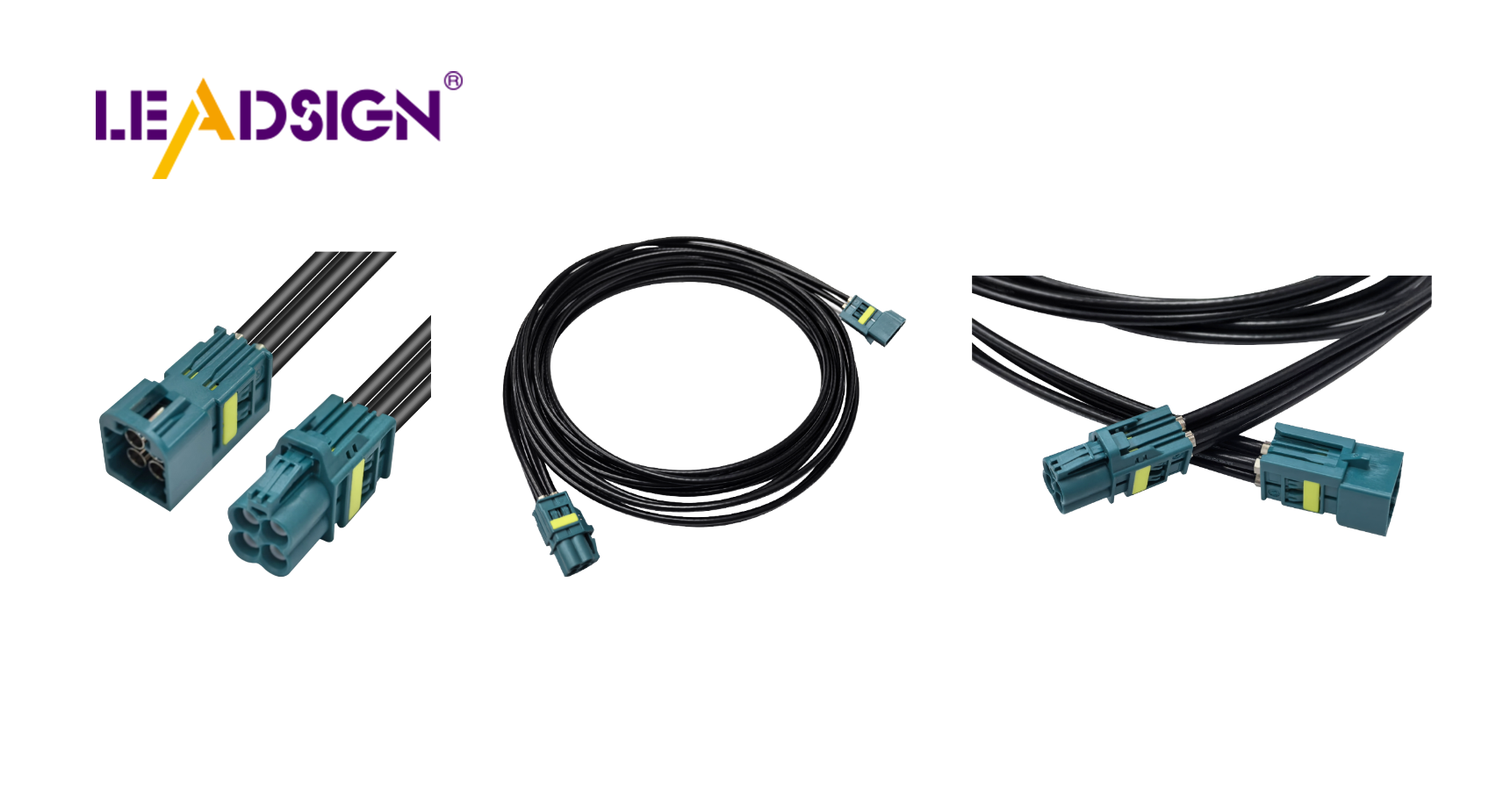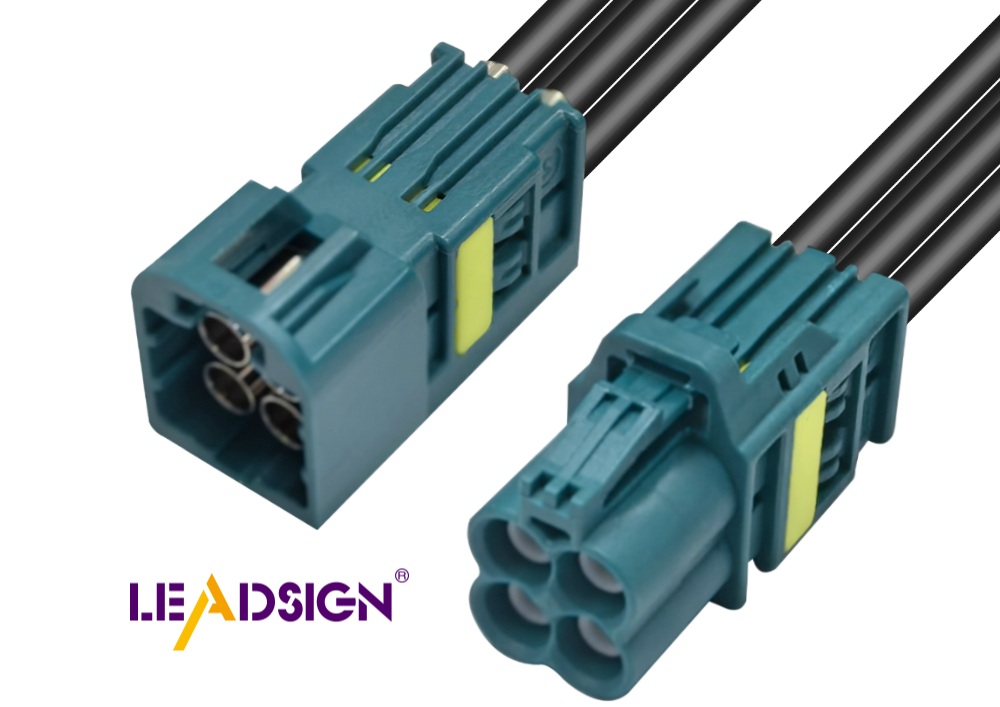Why Automotive Plugs and Connectors Are Vital for Safety

Automotive plugs and connectors are crucial for safety and performance. They provide steady electrical links for systems like brakes and airbags. Without reliable automotive plugs and connectors, key systems might stop working or fail. For instance, the engine uses them to control fuel and emissions. These connectors prevent short circuits and save space in the car. They also eliminate the need to cut and join wires. Using strong automotive plugs and connectors keeps your car safe and reliable while driving.
Key Takeaways
Automotive plugs and connectors are essential for maintaining safe and reliable connections between critical systems like brakes and airbags.
Using high-quality connectors prevents electrical failures that could lead to dangerous situations, such as loss of headlights or brake function.
Choosing connectors that meet OEM standards ensures better performance and reduces the likelihood of costly repairs in the future.
Regular maintenance, including cleaning and testing connectors, can help prevent accidents caused by weak or faulty connections.
Investing in strong, standardized connectors not only enhances safety but also protects your vehicle's value over time.
Understanding industry standards for connectors helps you make informed choices that improve your car's safety and efficiency.
Prioritizing quality in automotive connectors can save you money in the long run by minimizing repair costs and avoiding legal issues.
The Role of Automotive Plugs and Connectors in Vehicle Safety

Keeping Important Systems Connected
Automotive plugs and connectors help keep your car systems linked. They make sure brakes, airbags, and the engine work together properly. Without good connectors, these systems might not share needed information. This could lead to dangerous problems.
For example, the transmission system uses connectors to link with the car's computer. This connection helps the car change gears smoothly and safely. When this works well, your car runs better and stays safe.
"Connectors in the transmission system are very important. They let the car’s computer talk to the transmission for smooth gear changes." – Automotive Connectors Expert
By keeping electrical connections steady, plugs and connectors help all parts of your car work together. This teamwork is key for safety and performance.
Stopping Electrical Problems That Could Cause Accidents
Electrical issues in cars can cause big problems. Plugs and connectors stop these issues by making strong connections. A bad connector can break electricity flow, causing brakes or airbags to fail.
Think about driving at night when headlights suddenly go out from a bad connection. This is dangerous for you and others on the road. Good-quality connectors lower these risks by keeping electricity flowing right.
These connectors are built to handle tough conditions like heat or shaking. Their strength makes them last long and work well over time. Using strong plugs and connectors reduces accidents caused by electrical failures.
"Ever wonder how your car’s electric parts stay connected? Automotive connectors do this job quietly but effectively." – Automotive Connectors Expert
In short, using reliable connectors improves how your car works while keeping everyone safe inside it.
Performance Problems from Bad Connectors
System Failures and Poor Efficiency
Bad automotive connectors can cause systems to fail often. They don’t keep steady electrical links, which disrupts important car functions. For example, a weak brake connection might slow its response, risking safety in emergencies. Similarly, bad engine connections can make the car stall or waste fuel.
Good connectors help systems work smoothly together. They follow strict rules for better fit and long use. Cheap connectors may cost less at first but lead to repairs and safety risks later.
"Low-quality connectors hurt your car’s systems, causing breakdowns and higher costs." – Car Safety Expert
To avoid problems, always pick connectors that match OEM standards. These improve performance and lower repair chances.
Keeping Your Car Reliable Over Time
Connector quality affects how dependable your car is over years. Weak ones break faster from heat, water, or shaking. This wear can cause electric failures, leaving you stuck or paying big repair bills.
Strong connectors handle tough conditions well for a long time. They stay strong after years of use, keeping your car reliable. For instance, some are made for fast data transfer and advanced features like self-driving tech.
Using good connectors also protects your money. Cars with strong parts have fewer issues and keep their value longer. Choosing industry-standard plugs keeps your vehicle safe and working well for years.
"Buying good connectors isn’t just about now—it’s about keeping your car safe and reliable for the future." – Car Engineer
Key Automotive Connector Standards and Why They Matter
What Industry Standards Mean
Car plugs and connectors must follow strict rules for safety. These rules make sure they work well in tough conditions. This includes heat, shaking, and wet environments. By following these rules, companies make connectors that last.
For example, engine connectors handle high power without breaking. Rules also stop rust and keep strong electric links over time. This makes sure your car works as it should.
"Connector standards ensure safety" and performance in hard situations." – Automotive Standards Specialist
Knowing these rules helps you pick the right connectors. Whether for brakes or music systems, standard ones work better.
Why Compatibility and Strength Are Important
Connectors need to fit with other car parts properly. Standard designs help avoid mismatched parts that can cause problems.
They also need to be strong. Good materials like rust-proof metals make them last longer. For example, small but tough connectors save space while working well in modern cars.
"Strong connectors stay reliable even with advanced car electronics." – Automotive Engineer
Choosing good connectors keeps your car safe from breakdowns or costly fixes.
How Safety Improves With Standards
Following connector rules makes cars safer by stopping electric problems. Bad connections can harm brakes or airbags, which is dangerous. For instance, self-driving cars need perfect data flow to stay safe.
Standardized connectors also stop short circuits and keep power steady. This is important for features like maps or driver aids. When companies follow these rules, they focus on keeping you safe on the road.
"Connector standards are about more than quality—they protect lives." – Vehicle Safety Expert
By learning about these standards, you can choose the best plugs for your car.
Real-World Effects of Ignoring Rules
Accidents Caused by Bad Connectors
Not following connector rules can create big safety problems. Weak connectors often break under stress, making systems fail. For example, a bad brake connector might stop the brakes from working fast. This delay could cause an accident.
Airbags are another example. If weak connectors link airbags to sensors, they might not work in a crash. This puts everyone in the car at risk. These cases show how bad connectors can harm important safety systems.
Regular checks can stop these problems. Clean connectors and use coatings to prevent rust. Testing and careful installation also help them stay reliable. Doing this lowers the chance of accidents caused by bad connections.
"One broken connector can ruin a whole safety system." – Car Safety Expert
Costs and Legal Problems
Ignoring connector rules costs more than just safety risks. Broken connectors lead to expensive fixes. For instance, an engine with a bad connector may stall or waste fuel. Fixing it could mean replacing many parts, raising repair costs.
Legal trouble is another issue. If your car causes an accident due to bad connectors, you might face lawsuits or claims. Car makers who skip standards risk recalls, fines, and losing trust from buyers.
Good connectors save money over time by lasting longer and needing fewer repairs. They also keep you out of legal trouble by following safety rules.
"Using good connectors isn’t just safe—it saves money too." – Car Industry Specialist
By choosing strong parts that follow rules, you protect your car and wallet.
Car plugs and connectors are important for safety and efficiency. They help electricity flow smoothly and make systems work well. Good connectors last long and prevent problems like system failures. They keep brakes and airbags working properly. Picking strong connectors improves safety and lowers risks. Both car makers and users should focus on quality to stay safe. Always choose connectors that follow rules to keep your car reliable.
See Also
Why Fakra Connectors Are Essential for Today's Vehicles
Fakra Connectors: Key Components in Automotive Technology
HSD Connectors: Vital for Modern Automotive Systems
FAKRA Connectors: Crucial for Automotive Functionality
Boosting Data Transfer with High-Speed Automotive Connectors

